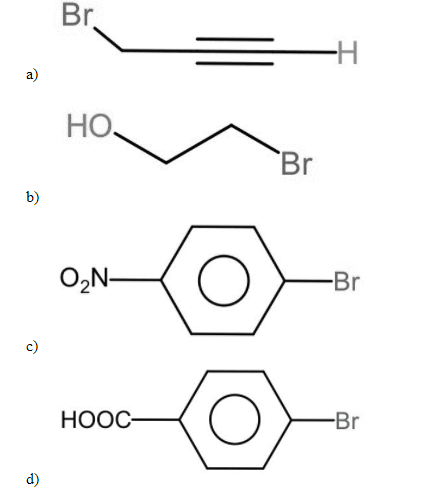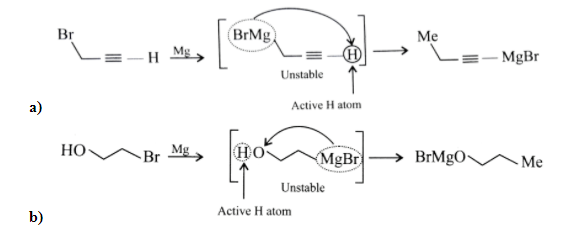Question
Question: Which of the following halides does not form G.R when treated with magnesium in the presence of et...
Which of the following halides does not form G.R when treated with magnesium in
the presence of ether?
This question has multiple correct options

Solution
Hint : The compounds formed by the reaction of an alkyl or aryl halide with magnesium are called Grignard reagents (G.R in short here). These are a part of an important named reaction called Grignard Reaction.
Complete answer :
Grignard reagents are named after Victor Grignard, who discovered them and gave their use as synthetic agents. In almost all the classes of organic compounds can be prepared from them. In the year 1912, Grignard finally earned one-half of a Nobel Prize for his revolutionary contribution to synthetic organic chemistry. The general reaction can be given as: AlkylhalideR−X+MgdiethyletherGrignardReagentR−Mg−X
where, R = alkyl or aryl group X = Cl, Br or I.
Since Grignard reagents are essentially the conjugate bases of alkanes, they’re also extremely strong bases, which means that sometimes in acid-base reactions they can compete with their nucleophilic addition reactions. As a result, it fails to give a Grignard reagent because the hydroxyl group protonates this reaction as soon as it is formed.
Now let’s see our options one by one:

C) It is not possible to synthesize Grignard reagent from nitro chlorobenzene. A reaction occurs through the -nitro group, as it is an electron-withdrawing group and it oxidizes the Grignard reagent. Therefore, we can’t prepare Grignard reagent from nitro chlorobenzene.

Note : A suitable solvent must be used. Therefore, Grignard reagents are usually prepared in diethyl ether (CH3CH2OCH2CH3). The two ether oxygen atoms stabilize the reagent by making complex with reagent.
